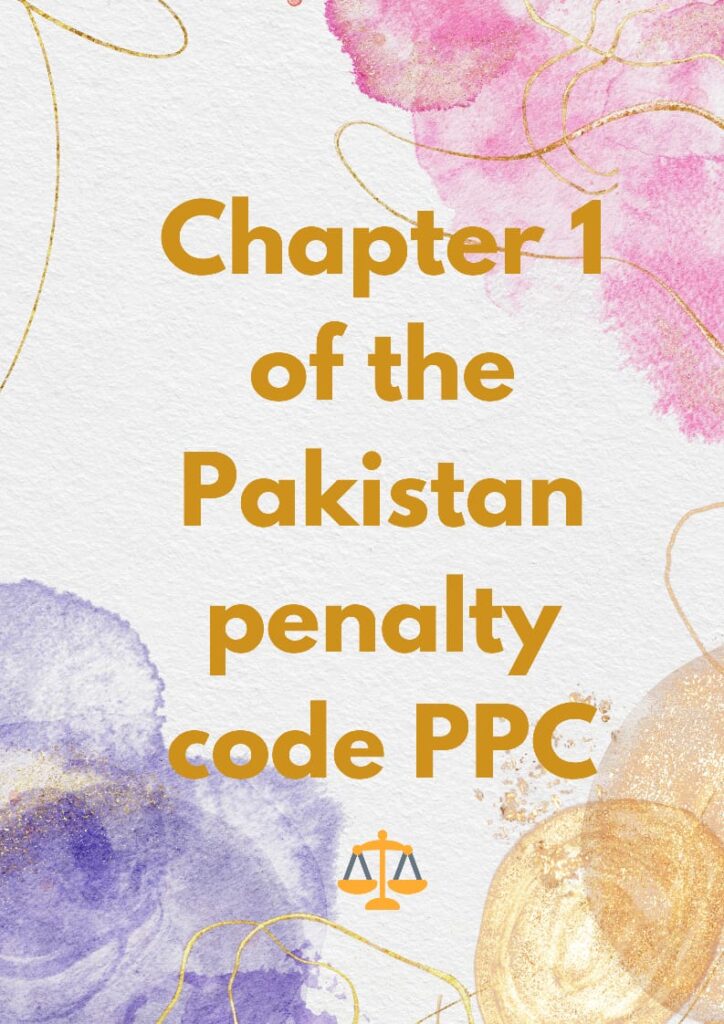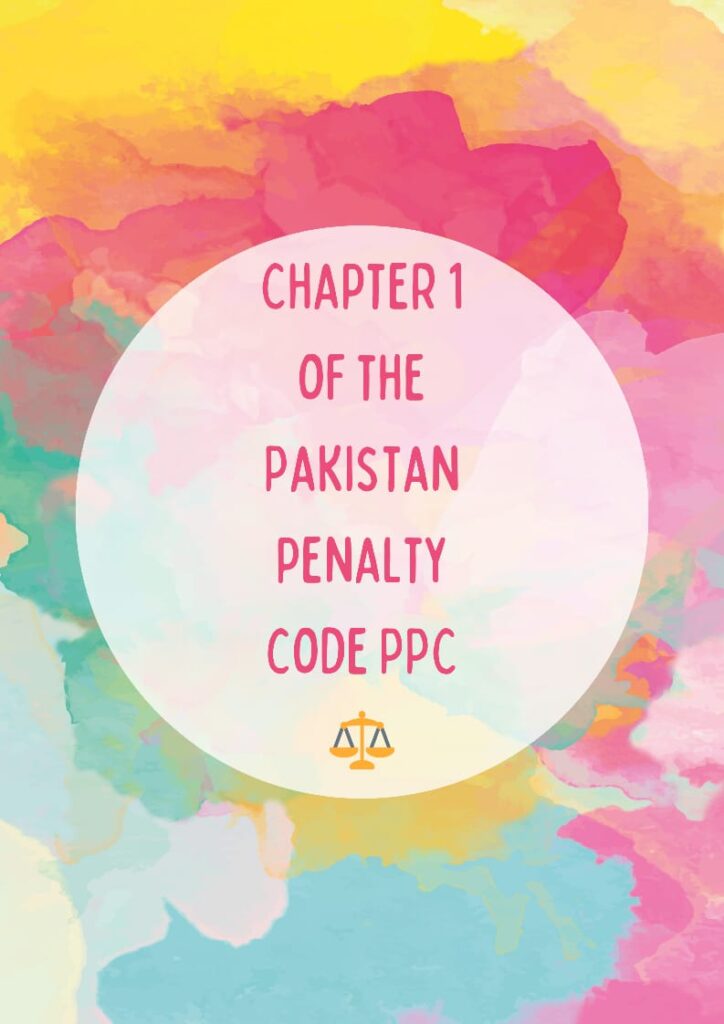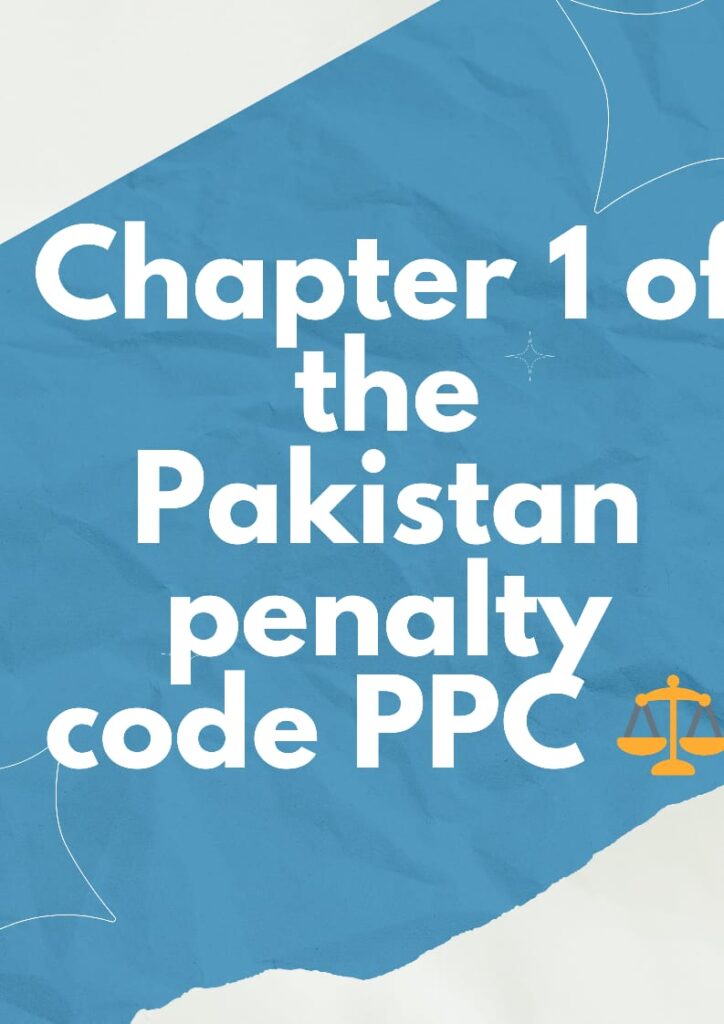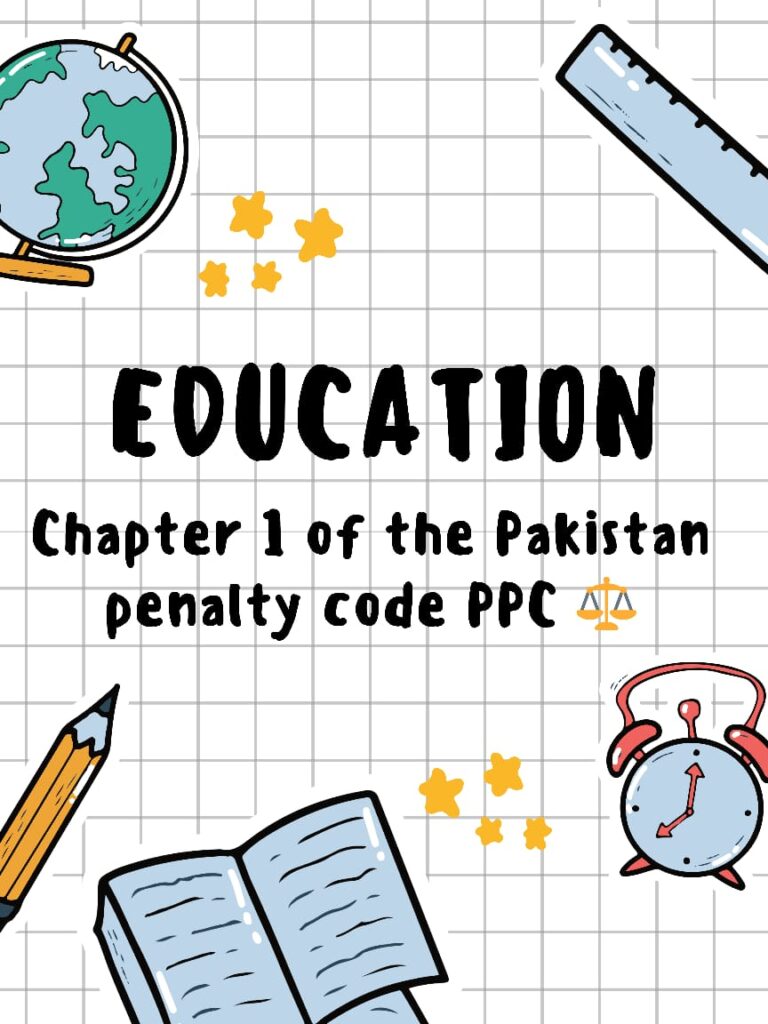Chapter 1 of the Pakistan

Chapter 1 of the Pakistan
Chapter 1 of the Pakistan Chapter 1 of the Pakistan Penal Code (PPC) lays the foundation for understanding the country’s legal system. Here’s a comprehensive blog with over 1000 words detailing this chapter.
Chapter 1: Introduction to the Pakistan Penal Code
Background and Significance
The Pakistan Penal Code (PPC) of 1860 is the primary criminal code of Pakistan. It provides a comprehensive legal framework for defining criminal offenses and prescribing punishments. The PPC was originally drafted during the British colonial era and has undergone various amendments to align with contemporary needs and local contexts.

Chapter 1 of the Pakistan
Objective of the Pakistan Penal Code
The primary objective of the PPC is to maintain law and order by defining offenses and prescribing punishments. It aims to deter criminal behavior and provide a legal mechanism for the redressal of grievances. The PPC is applicable to all individuals within Pakistan, including foreigners and citizens alike, ensuring uniformity in the administration of justice.
Structure of the Pakistan Penal Code
The PPC is divided into 23 chapters, each dealing with different categories of offenses and legal principles. Chapter 1 sets the stage for the entire code, outlining its scope, applicability, and key definitions.
Section 1: Title and Extent of Operation
The first section of the PPC, titled “Title and Extent of Operation of the Code,” declares the official name of the code and specifies its territorial jurisdiction. The PPC extends to the whole of Pakistan, including its provinces and federally administered territories.

Chapter 1 of the Pakistan
Section 2: Punishment of Offenses Committed within Pakistan
Section 2 emphasizes that every person shall be liable to punishment under the PPC for any act or omission committed within Pakistan, as long as it constitutes an offense under the code. This ensures that all criminal activities within the country’s borders are subject to legal scrutiny and appropriate penalties.
Section 3: Punishment of Offenses Committed Beyond, But Which by Law May Be Tried Within, Pakistan
Section 3 addresses the jurisdiction of Pakistani courts over offenses committed outside the country but are triable within Pakistan under any law. This provision allows for the prosecution of individuals involved in crimes that have cross-border implications or affect Pakistani nationals abroad.
Section 4: Extension of Code to Extraterritorial Offenses
Section 4 extends the applicability of the PPC to certain extraterritorial offenses. It covers offenses committed by Pakistani citizens outside Pakistan and offenses committed on aircraft and ships registered in Pakistan. This provision ensures that individuals cannot escape legal consequences by merely leaving the country’s territory.
Section 5: Certain Laws Not to Be Affected by This Act
Section 5 clarifies that the PPC does not repeal, vary, or affect any special or local laws. It highlights the coexistence of the PPC with other legal frameworks, ensuring that specific laws catering to particular regions or communities remain effective alongside the general penal code.
Key Definitions in Chapter 1
Chapter 1 of the PPC also includes essential definitions that form the foundation of legal interpretations throughout the code. Some of the critical definitions are:
- Offense: An act or omission made punishable by any law for the time being in force.
- Illegal: Everything which is an offense or which is prohibited by law, or which furnishes ground for a civil action.
- Legal: Anything which is not illegal.

Chapter 1 of the Pakistan
The Importance of Chapter 1 in Legal Proceedings
Chapter 1 is crucial as it establishes the PPC’s scope, ensuring clarity on its jurisdiction and applicability. It provides a clear understanding of who can be prosecuted under the code and under what circumstances, thereby laying the groundwork for all subsequent legal interpretations and applications.
Impact on Law Enforcement
For law enforcement agencies, Chapter 1 serves as a guideline on the extent of their authority. It helps police, judiciary, and legal practitioners understand the boundaries within which they operate, ensuring that they adhere to the prescribed legal framework while handling criminal cases.
Challenges and Amendments
Over the years, various challenges have emerged in the implementation of the PPC, leading to amendments and revisions. These changes aim to address contemporary issues such as cybercrime, terrorism, and human trafficking, ensuring that the legal framework remains robust and relevant.
Conclusion
Chapter 1 of the Pakistan Penal Code is the cornerstone of the country’s criminal justice system. It sets the parameters for legal proceedings, ensuring that all offenses are defined and dealt with uniformly. By understanding this chapter, one gains insight into the broader legal principles governing criminal law in Pakistan.
This detailed overview of Chapter 1 of the Pakistan Penal Code provides a comprehensive understanding of its significance, applicability, and foundational principles. Whether you are a law student, legal practitioner, or simply interested in Pakistan’s legal system, this chapter serves as a crucial starting point.
Chapter 1 of the Pakistan
blogs link Chapter 1 of the Pakistan learn more

